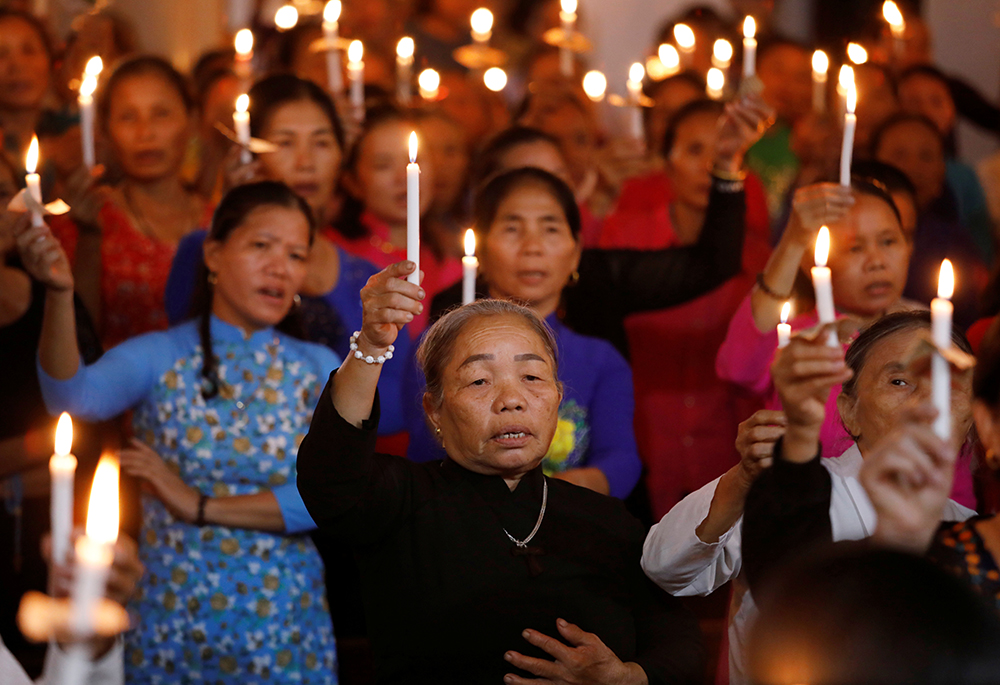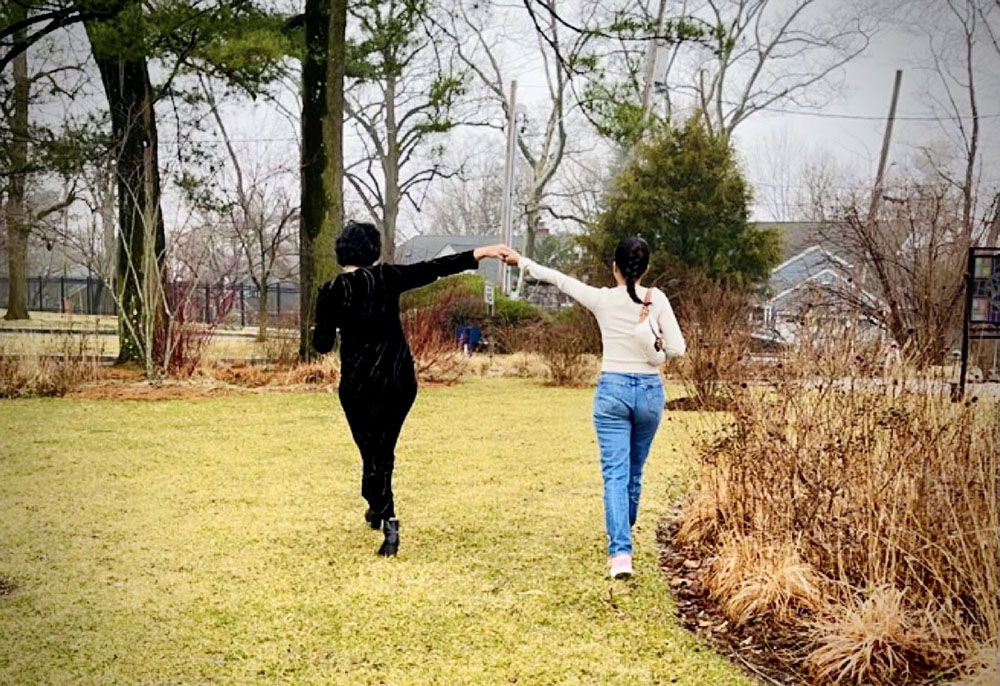
Women hold candles at a church Oct. 26, 2019, in My Khanh, Vietnam. The service was for 39 people found dead in the back of a truck at the Port of Tilbury Oct. 23, in Essex, England. (CNS/Reuters/Kham)
Since the COVID-19 pandemic, the complex phenomenon of human trafficking has moved underground, making it harder for law enforcement to detect. But sisters haven't slowed their efforts in protecting victims and rehabilitating survivors, as we've been reporting here on Global Sisters Report.
Today (July 30), in recognition of the United Nations' World Day Against Trafficking in Persons, we at GSR would like to highlight the different ways sisters across the globe have been working toward eradicating this slavery that manifests in myriad ways.
In May, Talitha Kum — the international umbrella organization that unites national sister-led networks against trafficking all over the world — shared its guiding priorities for the next five years. As NCR Vatican correspondent Christopher White reported, this includes "a renewed push for systemic change to root out modern slavery, a commitment to a survivor-centered approach to accompanying trafficking victims, and an expansion of global partnerships."
When I reported on human trafficking, sisters would share a common concern: Organized crime is exactly that — organized — so those who hope to combat trafficking need to be as organized, as networked, as the forces perpetuating it. Hence the necessity of networks such as Talitha Kum, which unites the disparate efforts of sisters from continent to continent.
Cue another sister-led, anti-trafficking organization: LifeWay Network.

Survivors of human trafficking enjoy the outdoors during a LifeWay Network outing. (Courtesy of LifeWay Network)
As GSR freelancer Elizabeth Crumbly reported in February, this New York City-based nonprofit offers safehouses for survivors of trafficking. It also offers educational services and advocacy outreach.
"Most of them suffer — especially those who've been sexually trafficked — a lot of mental health and post-traumatic stress disorder," Sr. Kate O'Neill, of Our Lady of the Missions told Crumbly about those who stay with them. "There's a vulnerability. The traffickers, I think, can sense this. ... It's a way of targeting them."
To combat human trafficking in Vietnam, where the number of trafficking survivors is increasing, Catholic sisters support survivors and act to protect vulnerable people by establishing avenues to employment and sustainable livelihoods, as GSR freelancer Joachim Pham reported earlier this month.
Advertisement
"Victims are reportedly enticed to work in foreign countries or marry foreigners, and then trafficked and coerced into online scams, forms of modern slavery, forced marriage, sexual exploitation or drug smuggling," Pham wrote. "Some have their organs harvested, while others are threatened to pay money for their release. Some individuals with disabilities are exploited for begging or subjected to chemical, drug or weapon testing."
Congregations in Vietnam grant financial aid to survivors of human trafficking and smuggling to help them pay for their medical treatment, raise pigs and poultry, and fish for a living.
While networks and congregations join together to maximize their reach, some individual sisters stand out for their efforts: In Nigeria, Sr. Philomena Okwu, of the Daughters of Charity of St. Vincent de Paul, was presented an award of excellence for her dedication to trafficking victims and her contribution to Nigeria's Network Against Child Trafficking, Abuse and Labour.
In Argentina, Teresian Carmelite Sr. Martha Pelloni has become a national icon for defending the rights of women and children who are victims of violence, abuse and trafficking for more than 30 years. In a country where political corruption robs victims' families of opportunities for justice, Pelloni has created networks of psychologists, lawyers, and social workers to help solve problems that generally require legal intervention, as Catalina Cepparro reported.
"We must make the person feel that she is not alone, and that she is not the only one in this situation," Pelloni told GSR. "We must help her believe that everything has a solution when she works well, when she is listened to, and when she believes in the tools you are placing in her hands."
In my years reporting and editing for GSR, I've come to appreciate Catholic sisters as not only admirable advocates in the fight against trafficking, but also as a fascinating lens through which to view the issue, as they are a trusted presence on the frontlines, sources who know the issue inside and out, be it about organ, sex or labor trafficking.
And when a journalist is seeped in covering a tragic issue, arguably the ugliest side of humanity, sisters serve as a healing contrast: the best of humanity toiling away quietly and out of sight, if not for GSR's insistence to shine a light on their work.





